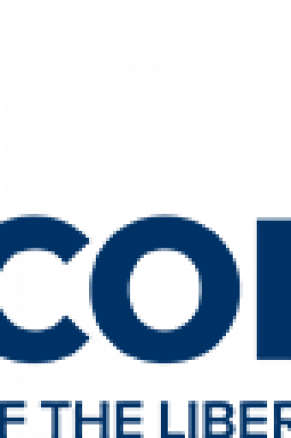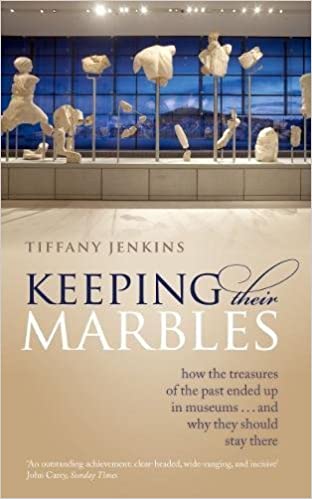One (seemingly) obvious solution to inadequate voter information is something like a market approach – an epistemic division of labor accompanied by a marketplace for enlightenment. Can this process ameliorate the knowledge problems faced by a technocracy?
Friedman is skeptical. Here I focus on two problems he raises. One is the problem of too much rather than too little information. The other is the problem with radical rather than rational ignorance.
Friedman reviews the substantial literature showing that voters’ understanding of even basic political facts is palsied at best, dryly noting that as one “reads the more recent scholarship, it sometimes seems as if researchers have been trying to outdo each other in expressing their discouragement at the breadth and depth of the public’s political ignorance.” This seems to suggest an obvious solution – a better informed public, and “researchers’ tacit (and often explicit) assumption has been that if people would just get more political knowledge into their heads, they would make reliably good political decisions.”
But this would suppose the problem is too little information. In reality, the problem is that there is too much information. For all practical purposes, we are drowning in an overabundance of information, and no person can gather more than the most miniscule fraction of it. Throughout Friedman’s book, the figure of Walter Lippmann looms large, as does his work on information problems of civilization. Friedman approving quotes Lippmann as saying:
The world about which each man is supposed to have opinions has become so complicated as to defy his powers of understanding…Even the things that are near to him have become too involved for his judgment. I know of no man, even among those who devote all of their time to watching public affairs, who can even pretend to keep track, at the same time, of his city government, his state government, Congress, the departments, the industrial situation, the rest of the world. What men who make the study of politics a vocation cannot do, the man who has an hour a day for newspapers and talk cannot possibly hope to do.
Lippmann wrote these words around a century ago. Since then, the quantity of available information and the ease with which it can be accessed have increased to a degree that few could have imagined. And yet, the capacity of the human mind hasn’t changed. Inevitably, as society grows more complex, each of us grows increasingly more ignorant of how society works. You can’t solve a problem caused by superabundant information with even more information. Our understanding will inevitably be limited to our fallible interpretations of the hopelessly tiny fraction of information we can manage to acquire.
But if solution isn’t more information, maybe it’s ensuring that we have the right information? This is where the problem of radical ignorance raises its head. Friedman thinks the idea of rational ignorance (that we deliberately decide the relevant information isn’t worth the cost of acquisition) is drastically overrated, and the real issue is radical ignorance – the things we don’t know that we don’t know. Deciding that the relevant information isn’t worth acquiring presupposes that you already know in advance what the relevant information would be, before you’ve acquired it.
Simply telling people to use reliable sources to acquire the best information from the most qualified experts only hand-waves away an enormous amount of epistemic complexity which renders such advice functionally useless. This is due to an unavoidable “part of the human condition, insofar as human beings are ignorant – that is, insofar as the truth is not self-evident.” Friedman goes on to note:
Before we know the truth, we cannot know which information is true or which interpretations are adequate; if we knew this, we would not be ignorant of the truth. Prior to the consumption of enlightening information and interpretations, radically ignorant voters will not be able to distinguish misleading information and interpretations from enlightening information and interpretations, because they are, by definition, ignorant of the truths about which they are seeking enlightenment. If instead they receive misleading information and interpretations, they will not have the knowledge of the totality that would allow them to recognize the inadequacy of that information and those interpretations.
One might pin their hopes on a form of competition helping consumers find the best information. Unfortunately, this wouldn’t work, Friedman says. The process of economic competition has mechanisms that tends towards progress even with radically ignorant consumers. In an economic market, consumers can judge if the final output they receive is satisfactory or not and can exert selection pressure against firms producing unsatisfactory products. This allows consumers in the market to “serve as anchors to reality and, therefore, as checks against dysfunction in the division of economic labor. This functionality of the system is ensured, however, only insofar as consumers are able to distinguish adequately between satisfactory and unsatisfactory products.” This is what breaks the analogy between an economic market and a market for political information:
In a “market” for political information and interpretation, “consumers” (voters) cannot possibly play such an anchoring role, because a consumer shopping for enlightenment finds herself facing the conundrum of the radically ignorant (where, again, radical ignorance means ignorance of unknown unknowns)…When one is radically ignorant of which information is true and which interpretations are adequate, one cannot know if one is “buying” bad information or interpretations, so one will be unable to exert a selection pressure against those who purvey the bad information and interpretations…Ultimately, a “market” for enlightenment cannot work in the way that ideal-typical consumer-goods markets work because in the latter, the ultimate guarantor of efficacy is supposed to be the feedback consumers get from the products they buy: the knowledge they acquire, by using the products, about whether their purchases have been unwise. There is no such feedback with most political knowledge, including the four types of technocratic knowledge. If people have been politically misinformed, how would they know it? If they were capable of knowing it on their own, they would not need the division of epistemic labor to enlighten them.
Attempting to outsource the process of selecting the “right” information by having journalists present information from the “best experts” runs into similar problems:
If experts disagree, at least some of them must be wrong. This is to say that, on the question at issue, at least some of them must be false experts. In turn, journalists cannot reliably screen out false expertise unless they have a kind of meta-expertise that allows them to be reliable adjudicators of disagreements among experts. This, too, is unlikely, as it would entail that journalists are more expert than the experts. In reality, journalists are usually unqualified to judge the adequacy of the information and interpretations they relay to voters from experts who disagree among themselves. Moreover, even if some journalists were meta-experts, radically ignorant consumers would be unable to tell which journalists these are.
Even stipulating the existence of ideal epistocrats who can successfully solve the knowledge problems of technocracy, the problems of radical ignorance remain systemic:
Suppose that somewhere within the division of epistemic labor of a mixed technocracy such as ours, in which there are both democratic and epistocratic elements, the Ideal Epistocrat (IE) comes up with an adequate interpretation of the cause of a significant social problem and devises a policy solution that objectively passes the cost-benefit test. How can the other actors in the system— voters, journalists, editorialists, amateur opinion-mongers, and epistocrats other than the IE— identify who the IE is? (Indeed, how can the IE know this?)…So long as the truth is not self-evident, everyone in the system may be radically ignorant of the identity of the IE, such that the system as a whole may be said to experience the conundrum of the radically ignorant. “The system” will not “know” which information and interpretations to mediate to consumers – the information and interpretations that originate with the IE – as the system will be unable to distinguish between the IE’s views from the views of putative IEs whose information or interpretations are in fact misleading.
Still, all of these problems are secondary to what Friedman sees as the most fundamental obstacle to an effective technocracy – ideational heterogeneity. That will be the topic of the next post.
Kevin Corcoran is a Marine Corps veteran and a consultant in healthcare economics and analytics and holds a Bachelor of Science in Economics from George Mason University.
(0 COMMENTS)








